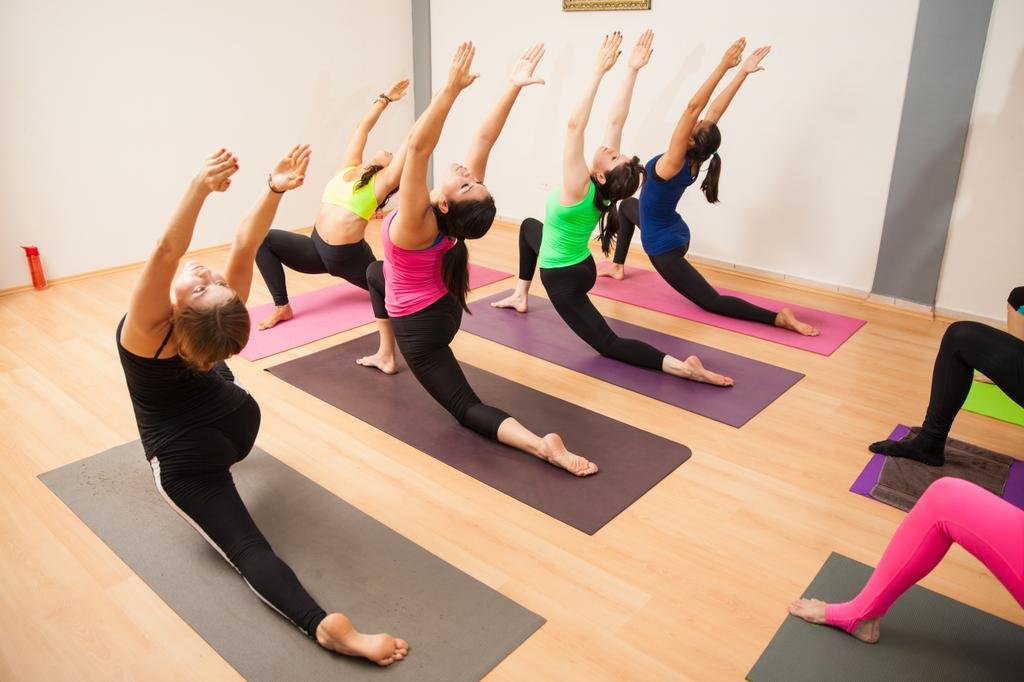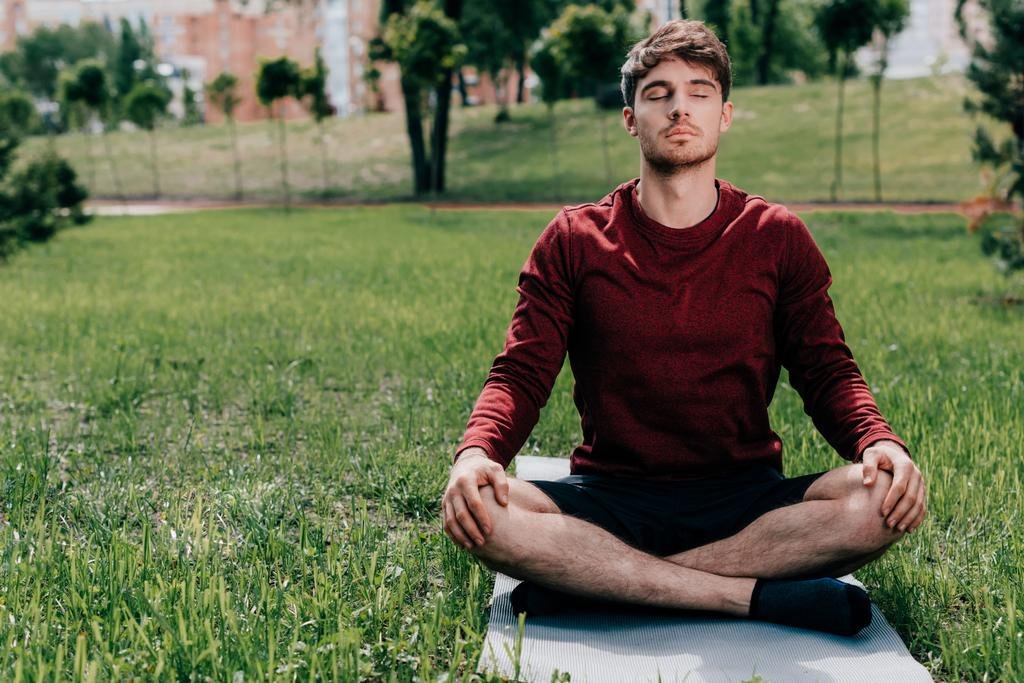Blog
How Yoga Can Make You Feel More Positive

Do you often find yourself feeling stressed, anxious, or just generally down? If so, you’re not alone. In today’s fast-paced world, it’s easy to get caught up in negative thoughts and emotions. However, there is a simple and effective way to boost your mood and cultivate a more positive outlook on life: yoga.
We’ll explore the many ways that yoga can make you feel more positive, from reducing stress and anxiety to increasing self-awareness and gratitude. Whether you’re a seasoned yogi or a complete beginner, incorporating yoga into your daily routine can have a profound impact on your mental and emotional well-being.
The Yoga Positive Emotions
The specific ways that yoga can make you feel more positive, let’s take a look at the science behind this ancient practice. Numerous studies have shown that yoga has a positive effect on mental health, including reducing symptoms of depression, anxiety, and stress.

One study published in the journal Frontiers in Psychiatry found that a regular yoga practice can increase levels of GABA (gamma-aminobutyric acid), a neurotransmitter that helps regulate mood and reduce anxiety. Another study published in the journal Complementary Therapies in Medicine found that yoga can increase levels of serotonin, a neurotransmitter that plays a key role in regulating mood and promoting feelings of happiness and well-being.
But how exactly does yoga work to promote these positive changes in the brain? One theory is that the combination of physical movement, deep breathing, and mindfulness that is integral to yoga helps to calm the nervous system and reduce stress and anxiety. Additionally, the focus on the present moment that is cultivated through yoga can help to shift attention away from negative thoughts and worries, and towards a more positive and balanced state of mind.
Reducing Stress and Anxiety
One of the most well-known benefits of yoga is its ability to reduce stress and anxiety. When we’re stressed or anxious, our bodies release cortisol, a hormone that can have negative effects on our physical and mental health over time. Yoga helps to counteract this stress response by activating the parasympathetic nervous system, which is responsible for the “rest and digest” response.

Through a combination of physical postures, deep breathing, and mindfulness, yoga helps to calm the mind and relax the body. This can lead to a reduction in symptoms of anxiety and depression, as well as improved sleep quality and overall feelings of well-being.
If you’re new to yoga, it’s important to start slowly and listen to your body. Some gentle and restorative yoga poses that can be particularly helpful for reducing stress and anxiety include:
- Child’s Pose (Balasana)
- Legs-Up-the-Wall Pose (Viparita Karani)
- Corpse Pose (Savasana)
- Cat-Cow Stretch (Marjaryasana-Bitilasana)
- Seated Forward Bend (Paschimottanasana)
As you practice these poses, focus on taking slow, deep breaths and releasing any tension or tightness in your body. With regular practice, you may find that your overall stress levels begin to decrease and your mood starts to improve.
Boosting Self-Awareness and Mindfulness
Another way that yoga can make you feel more positive is by increasing self-awareness and mindfulness. When we’re caught up in the busyness of daily life, it’s easy to operate on autopilot and lose touch with our thoughts, feelings, and bodily sensations. Yoga encourages us to slow down, turn inward, and pay attention to what’s happening in the present moment.
Through the practice of mindfulness, we learn to observe our thoughts and emotions without judgment, and to respond to them in a more skillful and compassionate way. This can lead to greater self-awareness, as we begin to notice patterns in our thoughts and behaviors that may be contributing to negative emotions or holding us back from living our best lives.

Some specific yoga practices that can help to cultivate self-awareness and mindfulness include:
- Pranayama (breath control): Focusing on the breath can help to calm the mind and bring our attention to the present moment.
- Meditation: Whether seated or walking, meditation helps to cultivate a state of inner stillness and awareness.
- Yin Yoga: This slow-paced style of yoga involves holding passive poses for several minutes at a time, allowing for a deep release of tension in the body and mind.
- Restorative Yoga: This gentle practice involves the use of props to support the body in relaxing poses, promoting a deep sense of rest and rejuvenation.
As you incorporate these practices into your yoga routine, you may find that you become more attuned to your own thoughts and emotions, and better able to navigate life’s challenges with a sense of clarity and presence.
Cultivating Gratitude and Compassion
In addition to reducing stress and increasing self-awareness, yoga can also help to cultivate feelings of gratitude and compassion. When we’re struggling with negative emotions, it’s easy to get caught up in our own problems and lose sight of the good things in our lives. Yoga encourages us to shift our perspective and focus on the present moment, which can help to cultivate a sense of appreciation for what we have.
One way to cultivate gratitude through yoga is by setting an intention at the beginning of your practice. This might be something as simple as “I am grateful for my body and all that it does for me” or “I am grateful for the opportunity to practice yoga today.” By focusing on gratitude, we shift our attention away from negative thoughts and towards the positive aspects of our lives.
Another way that yoga can cultivate compassion is through the practice of loving-kindness meditation (metta meditation). This involves silently repeating phrases of goodwill towards ourselves and others, such as “May I be happy, may I be healthy, may I be at peace.” By extending compassion towards ourselves and others, we open our hearts and minds to a greater sense of connection and empathy.
Improving Physical Health and Energy Levels
While the mental and emotional benefits of yoga are well-known, it’s important to recognize that yoga can also have a positive impact on physical health and energy levels. Regular yoga practice can help to improve flexibility, strength, and balance, as well as reduce chronic pain and improve cardiovascular health.
One of the key ways that yoga improves physical health is by increasing circulation and oxygenation throughout the body. As we move through various yoga poses, we stimulate the flow of blood and lymphatic fluid, which helps to flush out toxins and deliver nutrients to our cells. This can lead to improved energy levels, as well as a greater sense of vitality and well-being.

In addition to improving circulation, yoga can also help to build strength and endurance. Many yoga poses require us to engage multiple muscle groups at once, which can help to tone and strengthen the body over time. This increased strength and endurance can translate into greater energy levels throughout the day, as well as improved physical resilience and stamina.
Enhancing Cognitive Function and Clarity
Another way that yoga can make you feel more positive is by enhancing cognitive function and mental clarity. Studies have shown that regular yoga practice can improve memory, attention, and processing speed, as well as reduce symptoms of cognitive decline in older adults.
One theory for how yoga improves cognitive function is through its impact on the prefrontal cortex, the part of the brain responsible for executive function, decision-making, and emotional regulation. Yoga has been shown to increase blood flow to the prefrontal cortex, which may help to improve neural connectivity and overall brain function.
In addition to its direct impact on the brain, yoga can also improve cognitive function indirectly by reducing stress and anxiety. When we’re stressed or anxious, it can be difficult to think clearly and make good decisions. By calming the mind and body, yoga helps to create a sense of mental clarity and focus that can translate into improved cognitive performance.
Conclusion
There are many ways that yoga can make you feel more positive, from reducing stress and anxiety to increasing self-awareness and gratitude. Whether you’re looking to improve your mental health, boost your physical energy levels, or enhance your cognitive function, incorporating yoga into your daily routine can have a profound impact on your overall well-being.
Of course, it’s important to remember that yoga is not a magic cure-all for negative emotions or mental health challenges. However, when combined with other self-care practices such as healthy eating, regular exercise, and social support, yoga can be a powerful tool for cultivating a more positive and fulfilling life.
If you’re new to yoga, it’s important to start slowly and listen to your body. Find a qualified instructor who can guide you through the basics and help you develop a practice that feels safe and supportive. Remember that yoga is a journey, not a destination, and that the benefits will come with consistent practice over time.
So why not give it a try? Whether you start with a few simple stretches at home or sign up for a class at your local studio, taking the first step towards a more positive and balanced life through yoga can be a transformative experience. Let yoga help you cultivate a greater sense of peace, joy, and resilience, one breath at a time.
